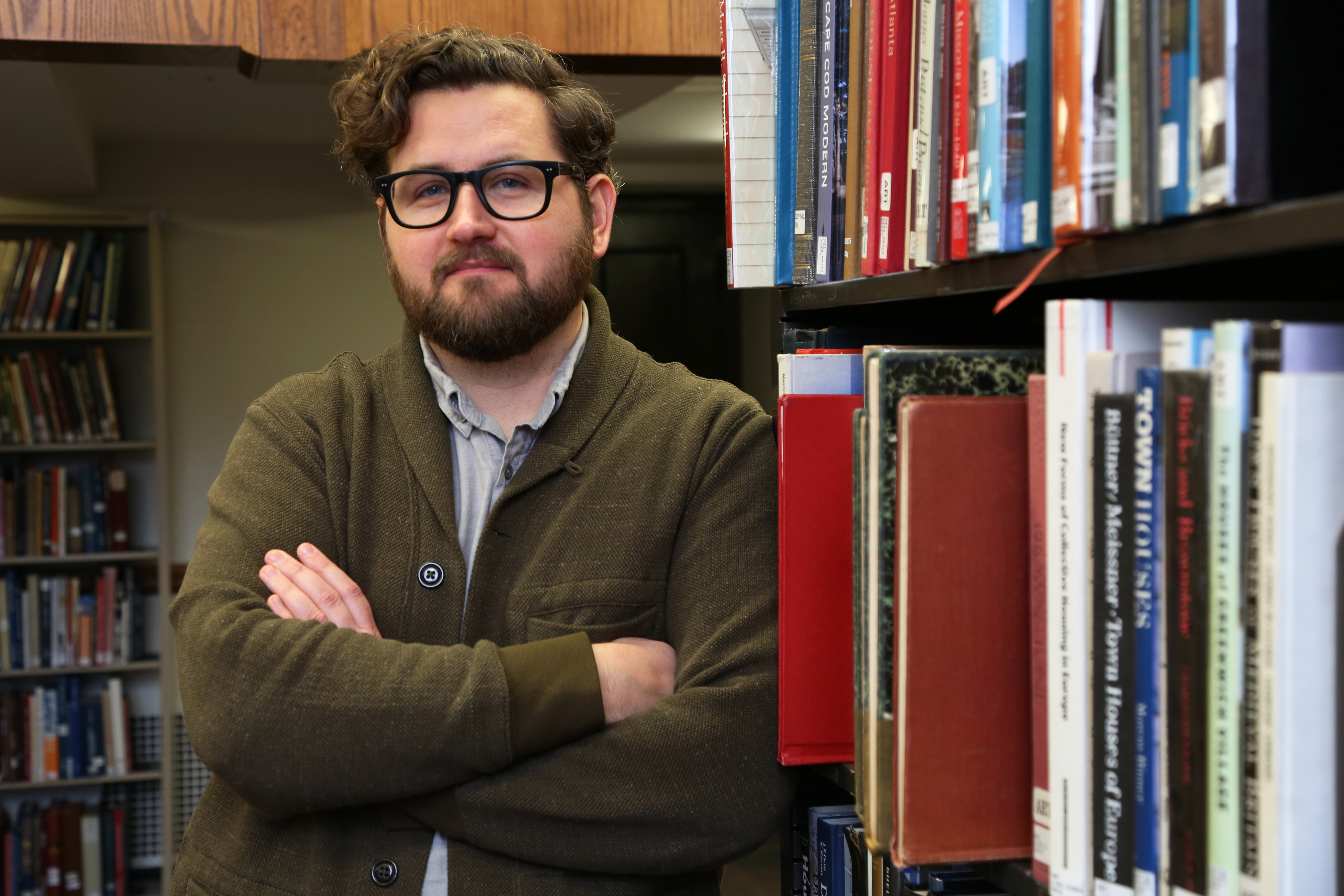The Northwestern Libraries employ over 70 librarians who specialize in areas such as rare books, area studies, digital scholarship, and archives. In this series, we sit down with librarians to understand what exactly they do, and how you might take advantage of their expertise.
Today we’re sitting down with Josh Honn to talk about the Digital Humanities work that is being done across the University and at the library.
 Give us a little bit of background information. How did you get into libraries?
Give us a little bit of background information. How did you get into libraries?
Very circuitously! My first job as an undergraduate was in the library (always the best gig!) but then I didn’t really think much about librarianship until I was visiting special collections at various libraries while researching my Master’s thesis. I didn’t really know then how to become a librarian so I worked as a print designer for several years until I realized there was this thing called an MLIS (Masters of Library and Information Science). I got my degree in 2011 and very fortunately found my way here.
For those of us unfamiliar with Digital Humanities, can you give us a quick definition?
There are hundreds of definitions of Digital Humanities, but I consistently give the same capacious, pragmatic and inclusive one: “Interdisciplinary humanities research, teaching, learning, and publishing, that can be: presented in digital form(s), enabled by digital methods & tools, about digital technology & culture, creating and experimenting with digital technology, and critical of its own digital-ness.”
Tell us about the Digital Humanities landscape at Northwestern. How has it evolved since you began?
Northwestern has a pretty rich history of doing digital humanities work, including Martin Mueller working on various kinds of digital text analysis, the library digitizing and curating collections, or groups on campus like the Media and Design Studio (formerly the Multimedia Learning Center) creating learning technologies and various kinds of digital pedagogy projects.
Since I’ve been here, I feel there’s been a shift toward really focusing on the roles students can play in these projects by seeing the classroom as a humanities lab. A few things I think that we are really good at here is telling stories, curatorial projects, enlivening the archive, and considering the ethics of our work.
Finally, we’ve seen increasing support and investment from folks like Adrian Randolph and Mary Finn in the Weinberg College of Arts and Sciences, Wendy Wall and Tom Burke at the Alice Kaplan Institute for the Humanities, and others, who really have our backs and help enable these rich and important collaborations that increasingly have participation from, significance to, and impact on communities beyond the academy.
Tell us about an interesting project you worked on recently.
There are so many! Since 2013 we’ve been doing a yearly digital humanities workshop in which 5 faculty members work for two weeks with librarians and technologists to develop digital research and pedagogy projects with meaningful roles for students. The Digital Humanities Summer Workshop is a really transformative experience (at least it has been for me!) and so many fantastic transdisciplinary projects emerge from it.
Most recently I worked with Jules Law in English on an undergraduate course called “Technologies of Language.” In that class, students worked with books from Special Collections and experimented remediating them into a variety of digital forms, culminating in some fantastic, experimental, and artistic final projects. If anyone wants to know more about the course, there’s a nice interview with Jules and examples of the students’ work.
As a Digital Humanities librarian, what services and support do you offer Northwestern faculty and students?
So much of my work is listening and learning. I meet with faculty and graduate students and really do my best to understand their research and pedagogy while working to build a truly collaborative partnership for any project that might emerge. I can recommend technologies and research tools, but that’s honestly one of the least fun parts of my job. The most fun is the conceptualization of courses and research projects, thinking about form and narrative, the ethics of access and digital technology, and the relationships we can create through the production and dissemination of our work. (A more precise list of services can be found on my Digital Humanities LibGuide.)
Just for fun: what’s your favorite Chicago museum and why?
I’ve been spending a lot of time at the MCA lately because the exhibits there have been on fire: Kerry James Marshall (?), Basim Magdy, Merce Cunningham, Witness, and The Making of a Fugitive. Another place I’ve been digging lately is the Stony Island Arts Bank. But the Chicago museum that holds the biggest place in my heart is the National Museum of Mexican Art in Pilsen, especially the yearly Dia de los Muertos exhibit.
